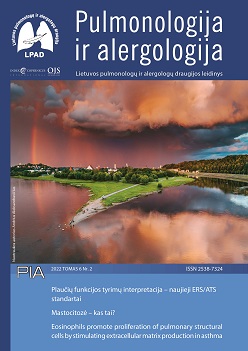EFFICACY AND SAFETY OF TREATMENT WITH ENTRECTINIB IN ROS1-POSITIVE NON-SMALL CELL LUNG CANCER
Abstract
Recurrent gene fusions are oncogenic drivers of various cancers. ROS1 fusions are enriched in non-small cell lung cancers (NSCLCs) and are present in 1–2 % of cases. Entrectinib is an approved tyrosine kinase inhibitor for ROS1 fusionpositive NSCLC. An updated and integrated analysis of entrectinib from the ALKA-372-001, STARTRK-1 and STARTRK-2 trials is presented in this article. The median survival follow-up was 29.1 months (interquartile range, 21.8–35.9). The objective response rate was 68 % (95 % confidence interval: 60.2–74.8); the median duration of response was 20.5 months. The median progression-free survival was 15.7 months and the median overall survival was 47.8 months. In 25 patients with measurable CNS metastases, the objective intracranial response rate was 80 %. (95 % CI: 59.3–93.2), median duration of intracranial response was 12.9 months, and median progression-free survival was 8.8 months. Among 18 patients with only CNS progression, crizotinib resulted in two partial responses (11 %) and four with stable disease (22 %). Seven cases from this cohort had an overall intracranial response rate of 14 % (one partial response). Entrectinib is an effective drug to prolong survival in ROS1-positive NSCLC. Modest activity is seen in patients with CNS-only progression post-crizotinib.


